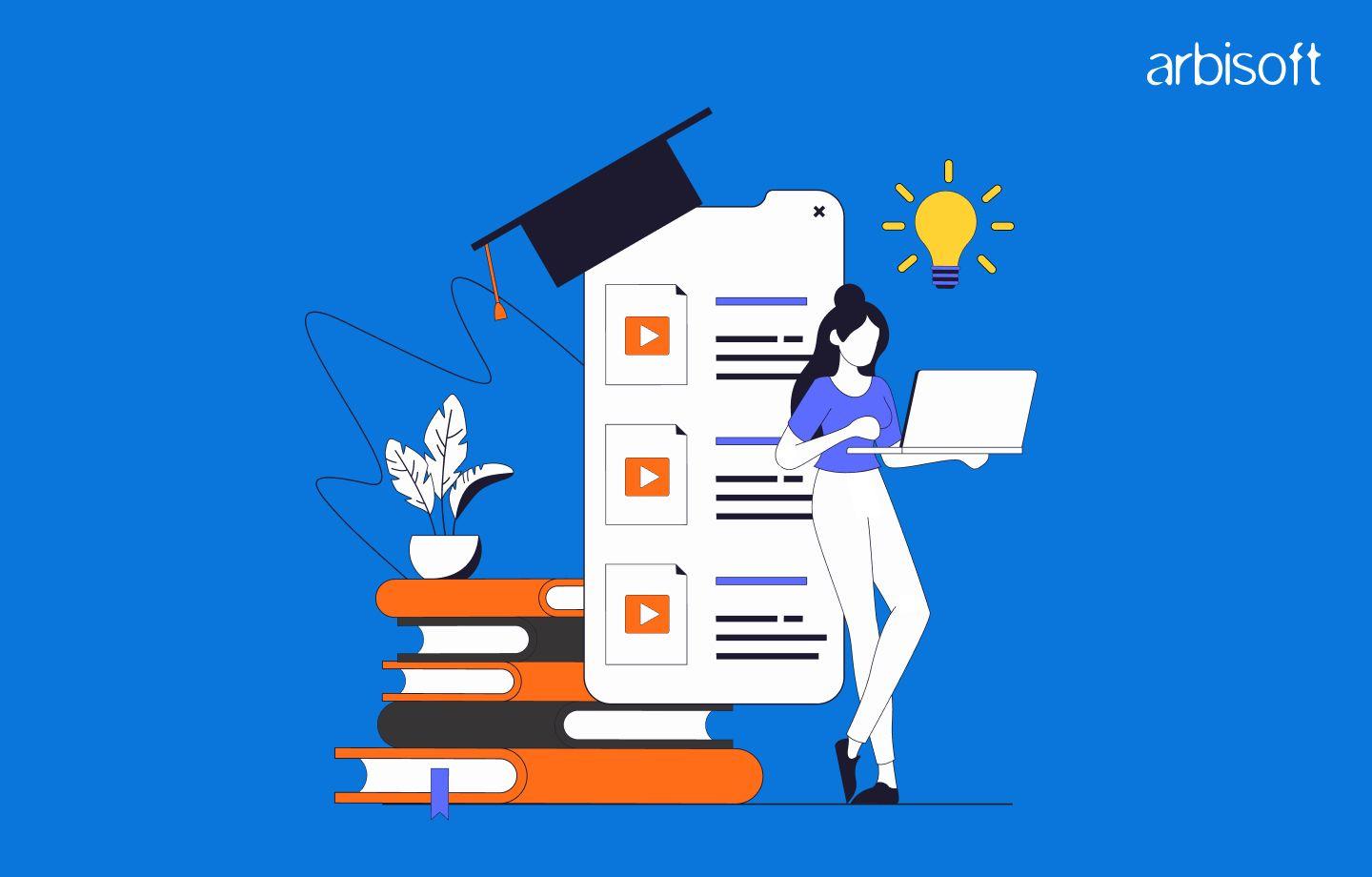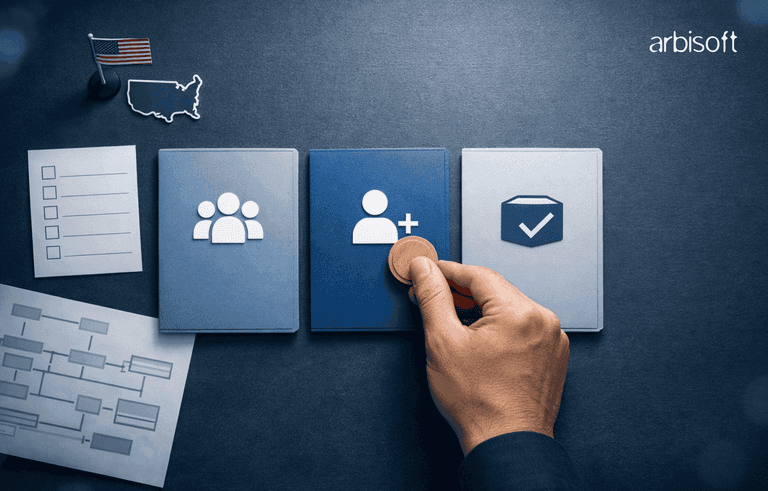We put excellence, value and quality above all - and it shows




A Technology Partnership That Goes Beyond Code

“Arbisoft has been my most trusted technology partner for now over 15 years. Arbisoft has very unique methods of recruiting and training, and the results demonstrate that. They have great teams, great positive attitudes and great communication.”
Why Does Your EdTech Product Need an MVP?

Creating an education technology (EdTech) product can feel overwhelming, especially with the fast pace of changes in technology and education. One of the smartest ways to tackle this challenge is by starting with a Minimum Viable Product (MVP). An MVP is the most basic version of your product that still solves the main problem for your users. It lets you test your ideas, gather feedback, and make improvements without spending a lot of time and money upfront. Here’s why defining your MVP is so important for the success of your EdTech product.
What is an MVP in Product Development?
An MVP, or Minimum Viable Product, is the simplest version of your product that can still solve the core problem for your users. It includes only the essential features needed to test your idea and gather user feedback.
Marty Cagan, founder of the Silicon Valley Product Group (SVPG), views the Minimum Viable Product as a crucial tool for learning and validation rather than just a simplified product. Key points from his perspective include:
- Learning Tool: The MVP's primary goal is to validate assumptions and gather insights about the market with minimal effort. It helps understand customer needs and market demand before full-scale product development.
- Core Value Proposition: An MVP should focus on essential features that address the primary problem. This enables rapid iteration and effective feedback collection, crucial for refining the product.
- Iterative Process: Cagan advocates for using the MVP in an iterative product development process. Continuous feedback collection and adjustments help align the product with market needs.
- Avoid Overengineering: The MVP should remain simple, focusing on learning objectives without unnecessary complexity, which can dilute its effectiveness.
- Product Market Fit: The MVP helps discover the path to product-market fit. Only after achieving this should a company consider scaling the product.
Cagan's approach emphasizes learning, validation, and iterative product development to ensure the product resonates with users. For more details, read Marty Cagan’s writings on the SVPG website and his book, "Inspired: How to Create Products Customers Love.”
How to Create an MVP?
1. Identify Your Problem
Before creating your MVP, take a deep look at your business idea and ask yourself “What problem does my product solve?”. This basic question will guide all your future decisions. Identify your target audience: Who are they, and why would they choose your product?
Dropbox did this well with its MVP, a simple video explaining the concept of its cloud storage solution. Potential customers could sign up for updates, providing Dropbox with valuable audience insights. This helped shape Dropbox into the successful product it is today.
Also, study your competition. Understanding what they do well and where they fall short can help you develop your unique selling proposition (USP).
2. Outline Your User Flow
User flow refers to the steps your customer will take to interact with your product. For instance, Airbnb's user flow involves customers searching for accommodations, viewing listings, and making bookings. This step-by-step process is crucial for building your MVP.
Break down the user journey into stages. Take Instagram as an example: users sign up, follow other users, post photos, and engage with content. Mapping out these steps helped Instagram deliver an excellent user experience.
Go into detail when outlining your user flow. This thoroughness will help you spot areas for improvement later on.
3. Focus on Core Features
With your USP and the problem it solves in mind, identify your product's core features. Distinguish between essential features and those that are nice to have. For your MVP, focus only on the essentials, and consider using a prototype to MVP development service to streamline feature identification and prioritization.
Prioritize these features, starting with the ones that will be most useful or interesting to your customers. Be honest and critical about each feature's necessity. Getting feedback from others can help you determine what's truly important.
Allocating features to different stages of your user flow can be helpful. For example, LinkedIn’s profile creation is part of its user onboarding stage and is a crucial feature. Tools like Asana or Trello can help you visualize this process.
[section-cta]
Why is MVP Crucial for EdTech Product Development?
Now that you have a solid foundation for creating your MVP, let's explore why it's especially crucial for EdTech products. Creating an education technology product is a big task, and integrating education technology & elearning solutions can help address the evolving demands. With the fast changes in technology and the unique needs of learners and teachers, starting with a Minimum Viable Product can make a huge difference. Here’s why an MVP is so important for EdTech products:
1. Test Your Idea Quickly
An MVP lets you test your core idea fast. Instead of spending a lot of time and money building a full product, you create a simple version with the most important features. This way, you can see if people are interested in your idea without a big investment.
Duolingo started with just basic language learning features to see if people wanted to use it. It worked, and they kept adding more features as they went along.
2. Get Real User Feedback
With an MVP, you can get feedback from real users early on. This feedback is gold because it shows you what’s working and what’s not. You can use this information to make your product better.
Quizlet started as a simple tool to help its founder study. By listening to user feedback, it grew into a popular study app used by millions.
3. Save Money
A full-featured EdTech product development is expensive. An MVP helps you focus your spending on the most critical features first. This way, you avoid wasting money on things that might not be necessary.
Khan Academy began with simple YouTube videos. This low-cost start allowed them to prove their concept before investing more in the platform.
4. Launch Sooner
An MVP allows you to get your product to market faster. In the fast-moving tech world, being quick can give you an edge over competitors.
Coursera started with just a few courses. This quick launch helped them attract early users and establish their place in the market.
5. Stay Flexible
Starting with an MVP gives you the flexibility to adapt as you go. You can easily make changes based on user feedback and new trends, keeping your product development smooth and relevant.
Edmodo began as a simple tool for teachers and students to communicate. Over time, it grew into a full learning management system as it adapted to users’ needs.
6. Lower Risk
Testing your idea with an MVP helps you identify potential problems early. You can fix these issues before you’ve invested too much time and money, reducing the risk of failure.
Many successful EdTech platforms, like Schoology, started small and improved over time, avoiding big failures by making small, iterative changes.
7. Grow More Easily
An MVP is a solid foundation for future growth. You start with the basics and add more features as your user base grows and you understand their needs better. Duolingo expanded from its MVP by adding more languages and features as it gained more users.
These examples showcase how starting with an MVP allowed these EdTech products to validate their ideas, gather user feedback, and grow into robust platforms that serve the needs of educators and learners effectively.
Conclusion
By starting with an MVP and leveraging MVP development services for it, you pave the way for your EdTech product's long-term success. An MVP empowers you to test your core idea quickly, gather invaluable user feedback, save money, launch sooner, remain flexible, lower risks, and foster growth more effectively.
The journey of EdTech giants like Duolingo, Quizlet, Khan Academy, Coursera, Edmodo, and Schoology highlights the power of starting small and iterating based on real-world feedback. Embracing the MVP approach can help you navigate the dynamic landscape of education technology, ensuring that your product meets the evolving needs of educators and learners while setting the stage for long-term growth and impact.
























